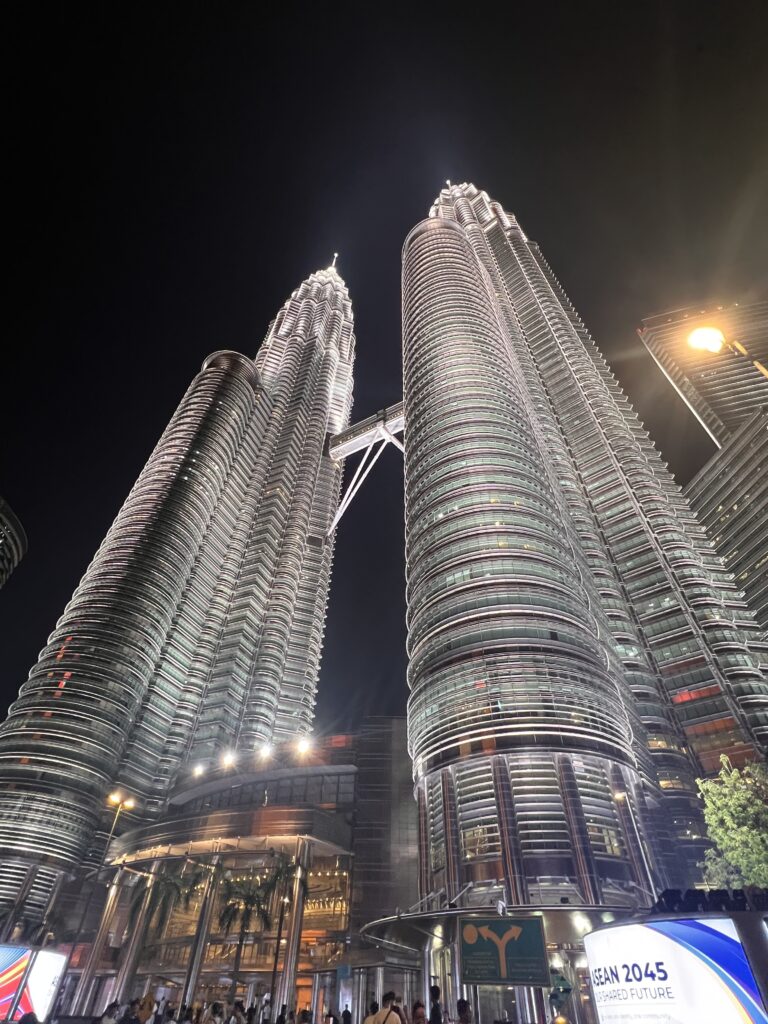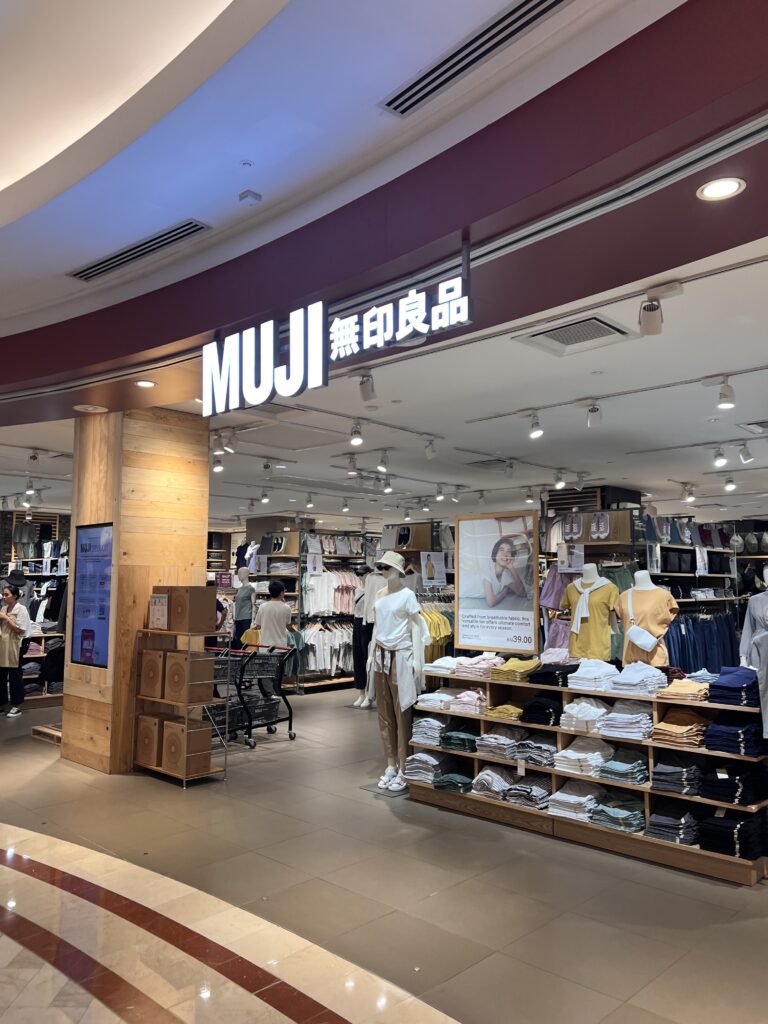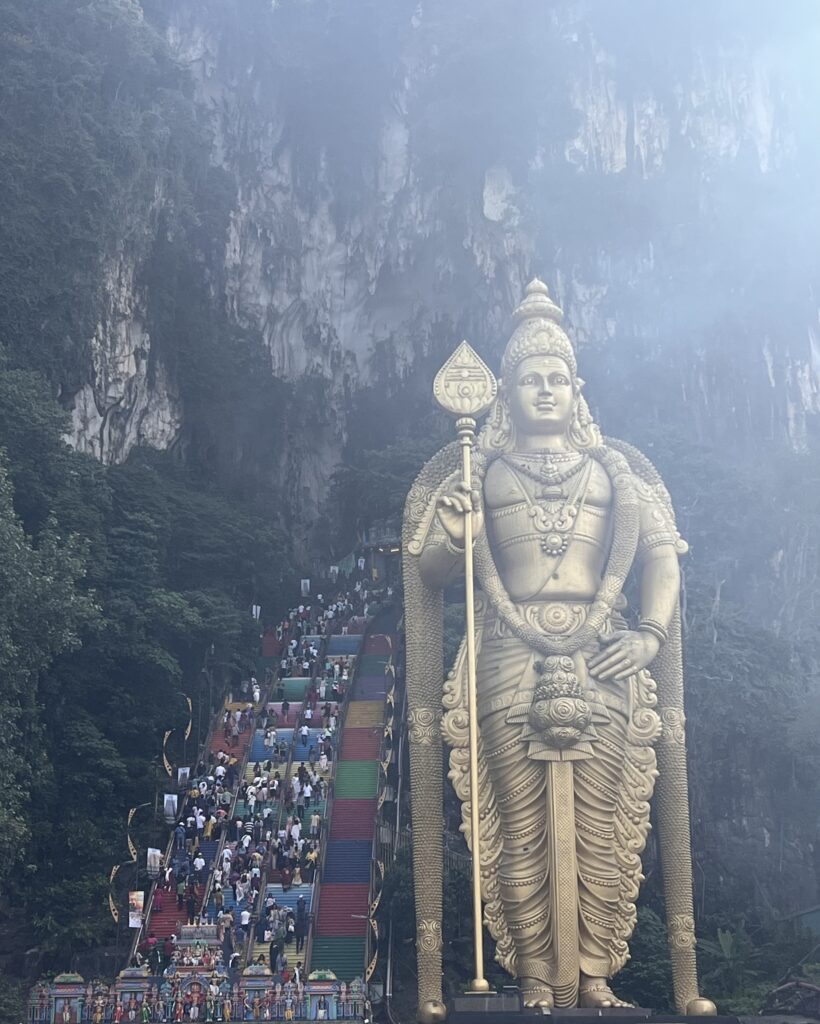I’m currently in Kuala Lumpur, the capital of Malaysia!
It’s my first time in KL and my first time back in Malaysia in about 15 years, since I visited Kota Kinabalu.
Originally, I wasn’t planning to come here, but since the maximum stay in Bali is 60 days due to visa regulations, I started looking for cities with direct flights from Bali—and KL came up as an option.
(In the end, my flight from Japan to Bali was delayed by a day, so I could’ve actually stayed in Bali longer, but I had already booked my flight to KL, so I decided to come anyway!)
KL is a big city with lots of Japanese stores—MUJI, Uniqlo, Don Don Donki, Nitori, Kinokuniya, Isetan, Ippudo, and more!


In recent years, more and more people from Japan have been relocating to KL, and I had heard that the main reason was the low cost of living.
But in reality—just like in many other major cities around the world—KL is no exception. If you eat at restaurants catering to foreigners or Japanese-owned places, it can actually be more expensive than in Japan.
These days, I can hardly think of any country that’s significantly cheaper than Japan. Maybe Vietnam, and that’s about it.
Even countries in Eastern Europe like Poland, the Czech Republic, and Slovakia, or places in Central America like Guatemala and Mexico—places that used to be much cheaper than Japan ten years ago—have become more expensive, sometimes even surpassing Japan. It might become harder and harder to travel long-term in the future.
Speaking of Malaysia, I remember attending a real estate investment seminar back when I was living in Tokyo around ten years ago.
At the time, there was a regulation that allowed foreigners to purchase real estate in Malaysia only if it was worth more than 500,000 ringgit (about 17.5 million yen at today’s exchange rate). But I recall hearing that the threshold would be raised to 1 million ringgit from 2014 (with some exceptions depending on the state), so the seminar was essentially encouraging Japanese buyers to act quickly before the change took effect.
Most people in Japan may not be aware, but many countries like China, Indonesia, and Malaysia have restrictions on foreign ownership of real estate. These laws often prohibit foreign purchases altogether or require buyers to meet very strict conditions. Japan, on the other hand, has no such restrictions and is an open market for everyone. That’s why for years, we’ve seen foreign investors scooping up properties in places like Hokkaido and Osaka, which has caused real estate prices to surge and short-term rental properties (like Airbnb) to explode in number—often raising concerns.
When you live abroad for a while, you start to realize how great Japan actually is. It’s easy to see why people want to invest in the country. Overall, land and property prices in Japan are still relatively low.
While I was in Ubud, I met a German woman who asked me about traditional Japanese houses. She was really interested in Japanese culture and Zen, and she told me she’s planning to visit Kyoto in September. Encounters like that—where someone shows a deep and specific appreciation for Japanese culture—can really open your eyes and make you learn more about your own country too.
I’ll be heading back to Bali tomorrow, but I’m continuing my studies for the Real Estate Career Person (不動産キャリアパーソン) certification, and I’m scheduled to take the final exam in early September. If all goes well and I pass, I’m planning to dive into my project on Ikuchijima in full force—so stay tuned!
Oh, and I also visited Batu Caves, a famous Hindu site in Malaysia! ↓

